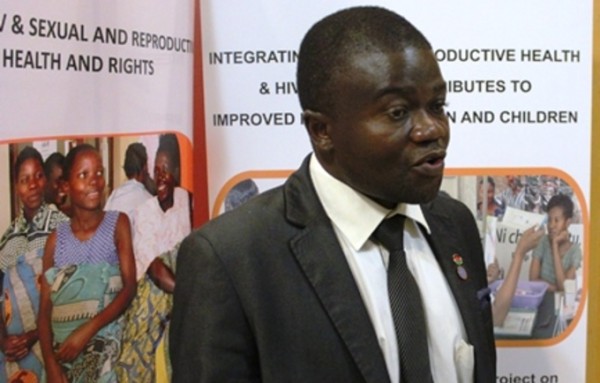By Carolyn Mkandawire
Blantyre, Malawi.
Lack of information and intensified general health education is said to be one of the major factors contributing to poor health among Malawians.
This was revealed by Peter Halpert, Health Office Director for USAID when Malawi’s ministry of health launched joint strategies of national health and malaria communication in the capital, Lilongwe.
Speaking after launching the two strategies which aim at improving health well-being of people in the country, Halpert said USAID which is Malawi’s key strategic partner will continue to render support to the country’s health sector.
According to Halpert the main objective of the communication strategy is broadly having standard language consistent messages for all Malawians not just health workers but for everybody.

“There are critical important messages people need to get in order to improve their health care. If we develop simple messaging that influence Malawians to change their behavior, it could go a long way in not just improving health care but also reducing the cost of health for all Malawians.” Said Halpert adding; “simple messages like hand washing could go a long way in improving people’s health. That’s up to fifty percent in terms of improved health.”
And on his part Malawi’s health minster Dr. Peter Kumpalume expressed hope that with USAID’s support the country has potential of overcoming problems and improving people’s health.
“They key thing about communication is to ensure that people understand the message you are putting across. Before this strategy there was no guideline in terms of how we promote health education in Malawi. And this document helps us more to the next level whereby there are guidelines and everybody understands how best we communicate in matters regarding health. So the strategy is a step in the right direction.” the minister said.
According to the minister the other strategy on malaria has the potential of overcoming the malaria epidemic by 2020.
Malaria continues to be a major public health problem in Malawi, with an estimated five million cases occurring annually.
Its effects are greatest among children under age 5 and pregnant women.
The Ministry of Health, in collaboration with its partners, has been implementing the National Malaria Strategic Plan 2011–2015; with the aim of achieving universal coverage in the prevention and treatment of malaria towards attainment of the national vision of “All people in Malawi are free from the burden of malaria”.
Specifically, it strived for progress in achieving prompt and effective antimalarial drug treatment, use of insecticide-treated nets and indoor residual spraying, and prevention of malaria in pregnancy.
According to the 2012 Malawi Malaria Indicator Survey overall there has been progress in controlling malaria with a decline in malaria prevalence from the 2010 value of 43 percent to the 2012 value of 28 percent.
Concurring with the report the health minister said Malawi has been reducing the cases of malaria year on year.
“We have stagnated a bit last year and this year, frankly because this year we have had more cases than we have ever had in the country. But overall we have been doing better in terms of prevention and treatment.” Said Dr. Kumpalume.
However, the Malawi Malaria Indicator Survey cite as challenges the coverage of pregnant women who receive at least two doses of intermittent preventive treatment (IPTp) which has decreased from a high of 60 percent in 2010 to a moderate 54 percent in 2012.
The survey said the decrease calls for a scaling up of efforts to increase IPTp coverage to prevent mothers from dying of malaria during pregnancy.
“Changes in antimalarial drug policy have provided challenges to increasing effective antimalarial treatment. Nevertheless, more children than before are receiving artemisinin-based combination therapy, and we expect these numbers to continue to increase.” Reads part of the Malawi Malaria Indicator Survey.